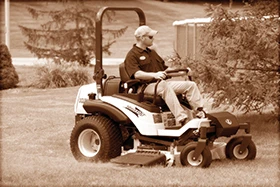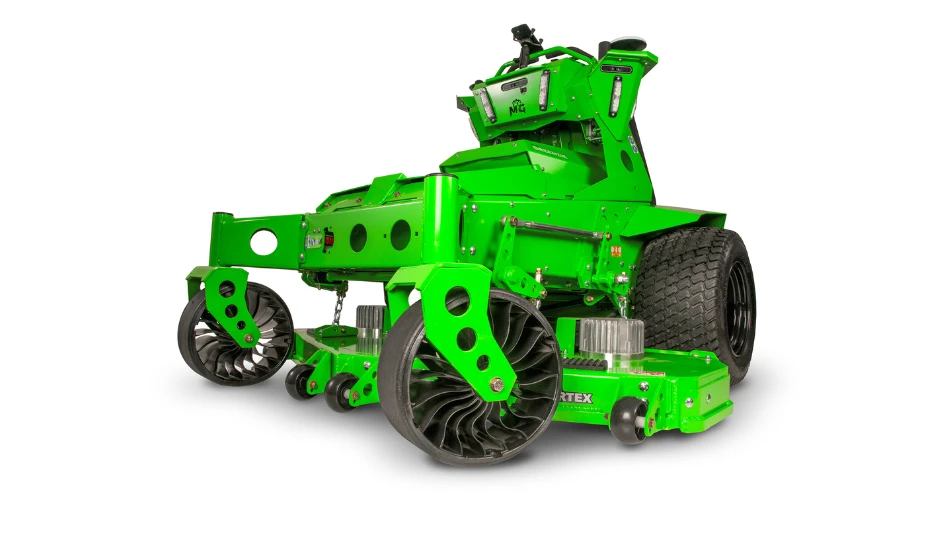
 As companies start looking ahead to 2013, they’re already gearing up for their new equipment purchases. Each company approaches equipment purchasing a little differently but most have similar expectations: They prefer buying their equipment as opposed to leasing it, are more conscious of spending since the recession and are looking for a strong relationship with their dealer. These core components come into play across the country when contractors create an equipment purchase plan.
As companies start looking ahead to 2013, they’re already gearing up for their new equipment purchases. Each company approaches equipment purchasing a little differently but most have similar expectations: They prefer buying their equipment as opposed to leasing it, are more conscious of spending since the recession and are looking for a strong relationship with their dealer. These core components come into play across the country when contractors create an equipment purchase plan.
Most owners say they primarily buy their equipment as opposed to leasing or renting it, unless there is something special needed for a specific job. “For instance, if the irrigators were going out and installing irrigation on a huge property and we needed a Ditch Witch trencher, that’d be something we would rent to get the job done rather than purchase a $20,000 unit,” says Scott Tintera, shop foreman for Clean Scapes in Austin and San Antonio, Texas. “But if we do rent something continually, and feel it would be an asset to own one, we will go ahead and purchase it.”
“Whether we rent or buy depends how often we use it,” adds Luke McClure, co-owner, LKM Mowing & Landscaping in Normal, Ill. “If it’s something we end up renting more than six times a year, or if it becomes a big hassle to rent it because we could use it more, than we will try to put something in the budget to purchase it for the following year.”
Patrick Donovan, owner of Classic Landscaping in Edison, N.J., says he looks at renting versus buying not only from a cost perspective, but also from an efficiency perspective. If it’s something he would use once in a blue moon, he’ll just rent it. But he says there’s a lot of hassle involved in renting.
“I might need a piece of equipment for just three hours but it will take six hours because I have to go to the place to get it, sign papers, then return it at a certain time and possibly jump through more hoops,” Donovan says. “I may have just been better off buying the equipment because it would save me time. It has to be something I use very infrequently to rent it.”
Donovan has also found that his equipment list has been a great sales feature. “I love to show my potential clients my equipment list because it shows them that I invest money in my business,” he says. “I don’t have to go get an unreliable piece of equipment to rent because I have everything I already need for the job.”
Buying Plans. Since the recession, companies are a little more wary about spending and maybe even holding on to equipment longer than before. Brent Gurney, equipment manager of Pleasant Grove, Utah-based Elite Grounds, says that the company has not only held off on equipment purchases but also reduced the amount of crews while having to increase workload to still meet their demands. “With the way the economy has been here, we’ve held on to our mid-sized and larger mowers as long as possible so next year we’ll be looking to mostly just purchase trimmers, edgers, blowers and some smaller push mowers for growth,” Gurney says. Donovan says that he’s always tried to get as much use out of his equipment as possible and feels that his business model allows for that. “I’m an owner/operator so I get much more longevity out of my equipment,” Donovan says. “I still have a 1989 truck that’s operating just fine because I’m the only one that drives it. I’m a family operation. It’s myself and my three sons so we all have a vested interested in taking care of the machines.”
Donovan says that each employee has his own machine, and is on that same machine every day. “You end up having a relationship with the machine,” he says. “If you hear a click or a buzz, it’s your machine and you know if something isn’t right. Because we take such good care of the equipment we don’t have to rotate it very often. The average business may rotate pieces every three years but for us, it’s at least every seven.”
 Tintera says that Clean Scapes will run equipment until it’s no longer cost-effective to do so. “If the parts to repair an older weed eater are going to be $225 and we could buy a new one for $300, we’re obviously going to buy a new one at that point,” Tintera says. “But we’ll then use all of the reusable parts that we can on the old equipment. We’ll keep those to repair other pieces that go down.”
Tintera says that Clean Scapes will run equipment until it’s no longer cost-effective to do so. “If the parts to repair an older weed eater are going to be $225 and we could buy a new one for $300, we’re obviously going to buy a new one at that point,” Tintera says. “But we’ll then use all of the reusable parts that we can on the old equipment. We’ll keep those to repair other pieces that go down.”
Sometimes planning for equipment purchases can be a challenge. As a newer company (founded in 2007), FieldStone Landscape Services in Clearwater, Fla., has seen fairly rapid growth and that’s meant growing their equipment base rapidly as well. Michael Thackery, co-owner, says that he often feels like they’re scrambling when it comes time to purchase. That’s why they’ve started playing closer attention to projected growth now that the company has several years under its belt.
“Our plan is to budget in the fall and then come January we’ll start calling the local dealers for prices,” Thackery says. “Our goal is always a one-time buy but it never happens that way. But we definitely focus on buying into our growth so that we don’t have to scramble come busy season.”
The Dealer Relationship. When it comes to working with a dealer, most companies are looking for loyalty these days. Donovan says that even if he had to pay a little more, he’d still go to the same person every time he buys. But because of his loyalty, he feels he gets the most competitive price. “He doesn’t want me to shop around so I feel he gives me the best price the first time,” Donovan says. “But what it comes down to is service and that means having a relationship with my dealer. If I break down on a Sunday, I can text him on his personal phone and he’ll open up shop and loan me a machine if he has to. You can’t put a dollar value on that.”
“I feel like it does make a difference in the relationship when you work with someone consistently,” adds McClure. “Even just for efficiency’s sake – they know you and what to expect and you don’t have to create a new plan with a new dealer all the time.”
Thackery says finding a dealer that you can have a strong relationship with might mean going an extra mile – literally. “We do have a mower shop that’s right down the street from us, but for our most recent purchase we actually went over the bridge to a different dealer because we felt we got better service and built a better relationship,” he says.
In Utah, Green Line Equipment has set the bar high for Elite Grounds, Gurney says. “They have changed what we now expect from a dealer,” he adds. “If a machine goes down and is still under warranty, they bring us an identical mower, take the other mower back to their shop and repair it. Then they swap it out. It ensures we have no down time and we’ve now come to expect that higher level of service.”
Tintera says Clean Scapes has partnered with a parts and equipment dealer to get on a fleet pricing program. He says that the fleet discount on their equipment has been a nice incentive, and he’s also built a great working relationship with the dealer. “They’re really great at ordering parts and they can get things overnighted so we get it quickly and keep our downtime at a minimum.”
In the end, no matter what the buying plan is, everyone is looking to operate as efficiently and cost-effectively as possible these days. Tintera says that the best way to do that is to take good care of the equipment. His crews are set up on a weekly maintenance schedule to ensure that equipment is regularly serviced and also kept clean and presentable. “As long as you keep equipment on a strict maintenance interval, the machines can go a long way,” Tintera says. “Keep them on that strict interval and you’ll get the longest life possible out of your machines.”


Explore the October 2012 Issue
Check out more from this issue and find your next story to read.
Latest from Lawn & Landscape
- Connect, Control & Conserve with Horizon Technical Services
- Use Horizon's Parts Hotline
- How I built a Top 100 company
- Horizon’s Exclusive TurfGro Fertilizer
- Grow your business with mosquito control
- LandCare adds 2 branches in SoCal, promotes Aleman to branch manager
- Spray them away
- PERC helps debut propane direct-injection fuel system at ACT Expo 2025






